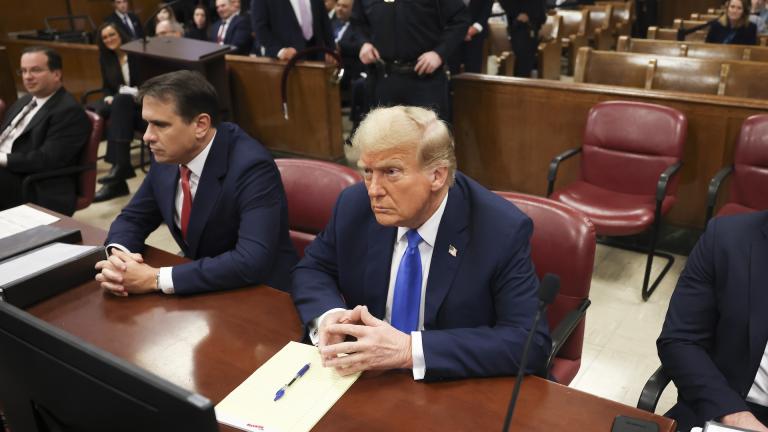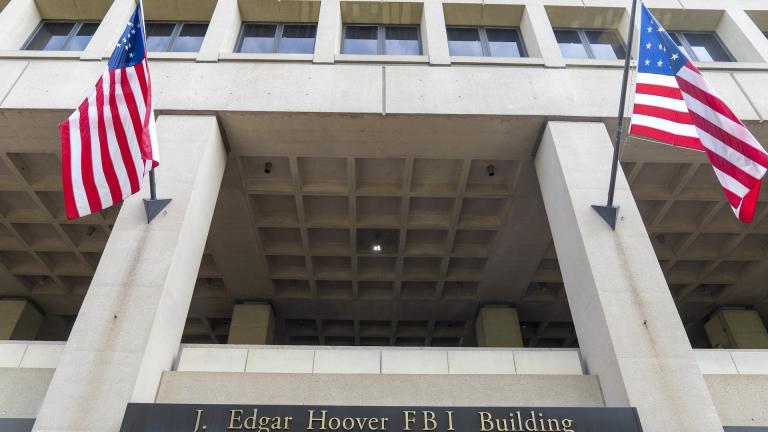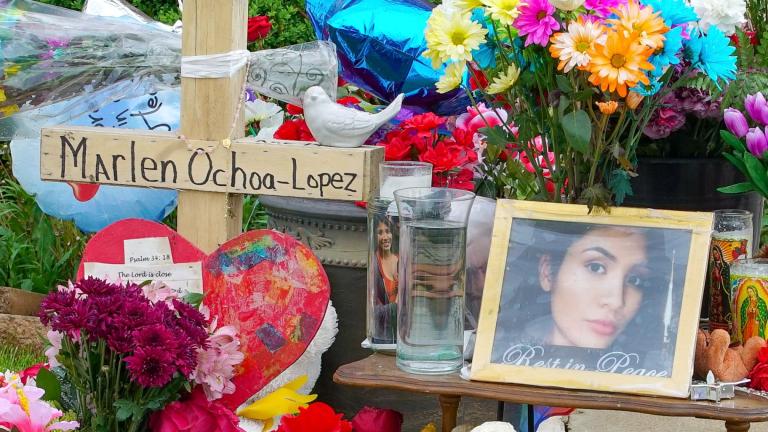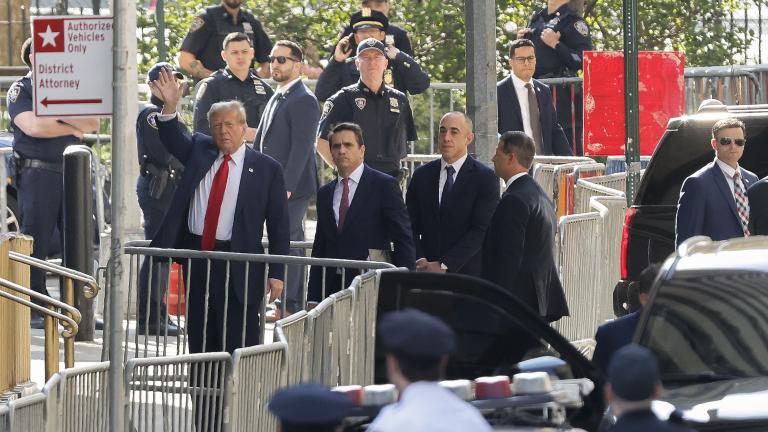Video: FOP Lodge 7 President John Catanzara and Community Commission for Public Safety and Accountability Presidemt Anthony Driver appear on “Chicago Tonight” on Dec. 11, 2023. (Produced by Andrea Guthman)
The head of Chicago’s largest police union believes the officers in his union should have the right to go to arbitration over the most serious disciplinary decisions, but reform leaders believe doing so could “set us back decades.”
The City Council will vote Wednesday on an agreement brokered by Mayor Brandon Johnson to resolve issues left over from a contract agreement reached by former Mayor Lori Lightfoot in July 2021 that ended the longest union negotiations in the city’s history.
But the council’s Workforce Development Committee last week voted to reject an effort backed by the city’s largest police union to upend the system used to punish officers for 60 years.
The Fraternal Order of Police Chicago Lodge 7 has sought to move the most serious disciplinary cases away from public hearings before the Chicago Police Board.
Independent arbitrator Edward Benn issued an opinion earlier this year that would allow Chicago police officers to choose to have the most serious police disciplinary cases heard by an arbitrator rather than the police board.
If 30 members of the City Council vote to reject the changes to the police discipline system, a judge will likely decide whether Chicago police officers facing a suspension of at least a year or termination have the right to be heard by an arbitrator rather than the Chicago Police Board.
FOP Lodge 7 President John Catanzara said the law is on his union’s side, telling “Chicago Tonight” that the FOP already had the ability to back out of the Police Board’s process and move some disciplinary cases into arbitration.
“We were afforded the ability to go to arbitration in lieu of striking,” he said. “Period. Full stop.”
But Anthony Driver — president of the Community Commission for Public Safety and Accountability — believes doing so would “set us back decades.”
“The public has a right to know when (a case) goes before the police board,” he said on “Chicago Tonight” Monday. “If it goes before an arbitrator, it goes behind closed doors.”
As part of negotiations over the city’s labor agreement with the Fraternal Order of Police, Lodge 7, an arbitrator ruled that officers had the right to choose how their cases were resolved. It is unlikely that few, if any, officers would decide to give the police board the final say rather than an arbitrator, who must be appointed with the blessing of union leaders.
Driver said police officers — who have the legal right to take away people’s life or freedom — must be held to a higher standard when it comes to discipline.
“The bar has to be higher,” he said. “You have to be publicly accountable.”
Catanzara argued the Police Board hasn’t been fair to officers, and claimed arbitrators can instead take the “emotion and public sentiment” out of the cases they hear. But Driver said those arbitrators are not publicly accountable and are not even required to live in Chicago or Illinois.
Catanzara said his union has been open to a compromise, but those offerings were rejected by the city. Driver is hopeful the sides can reach an agreement.
“Based on what John is saying, there’s some daylight here,” he said. “I’m actually hoping to have conversations with him about how we can fix this.”
Heather Cherone contributed to this report.
Contact Matt Masterson: @ByMattMasterson | [email protected] | (773) 509-5431








